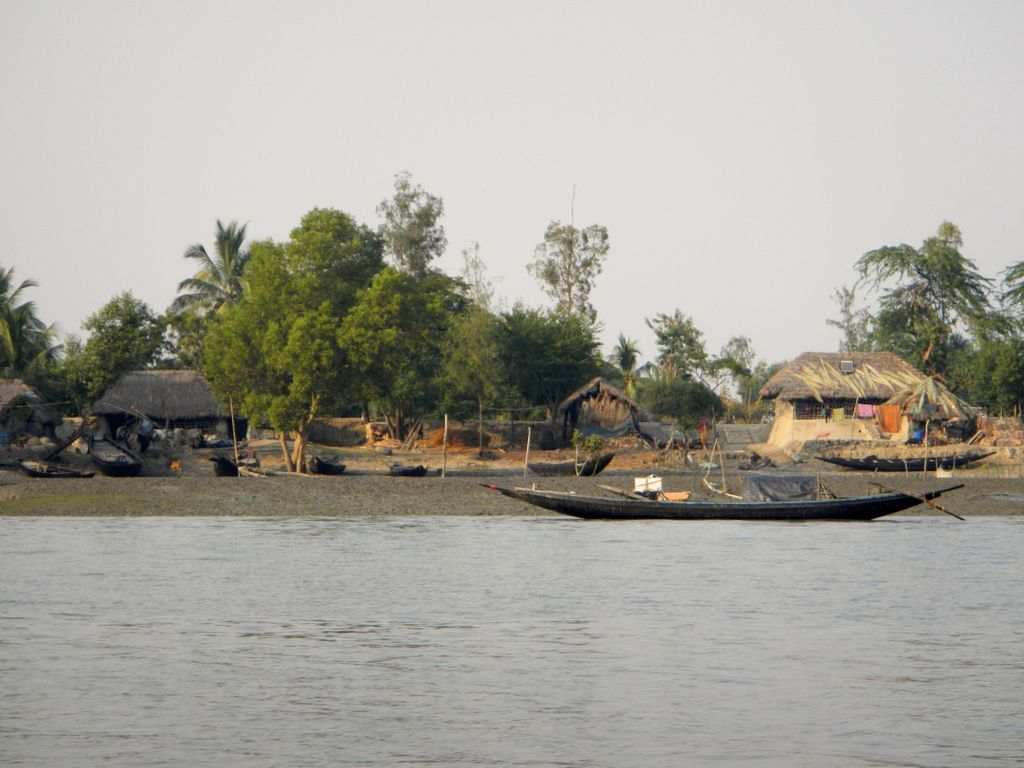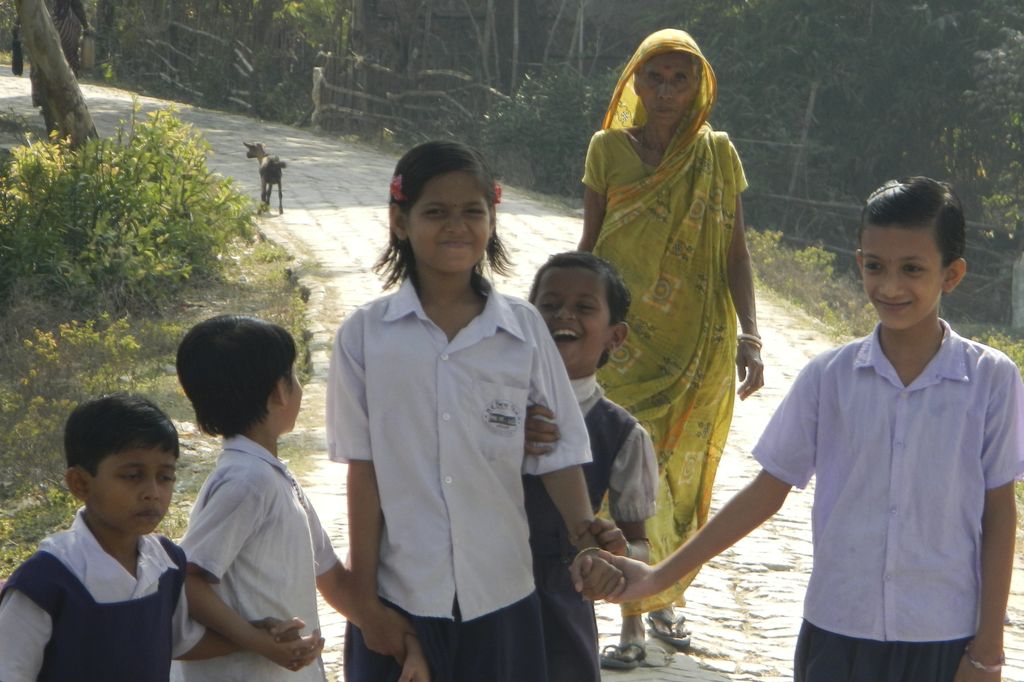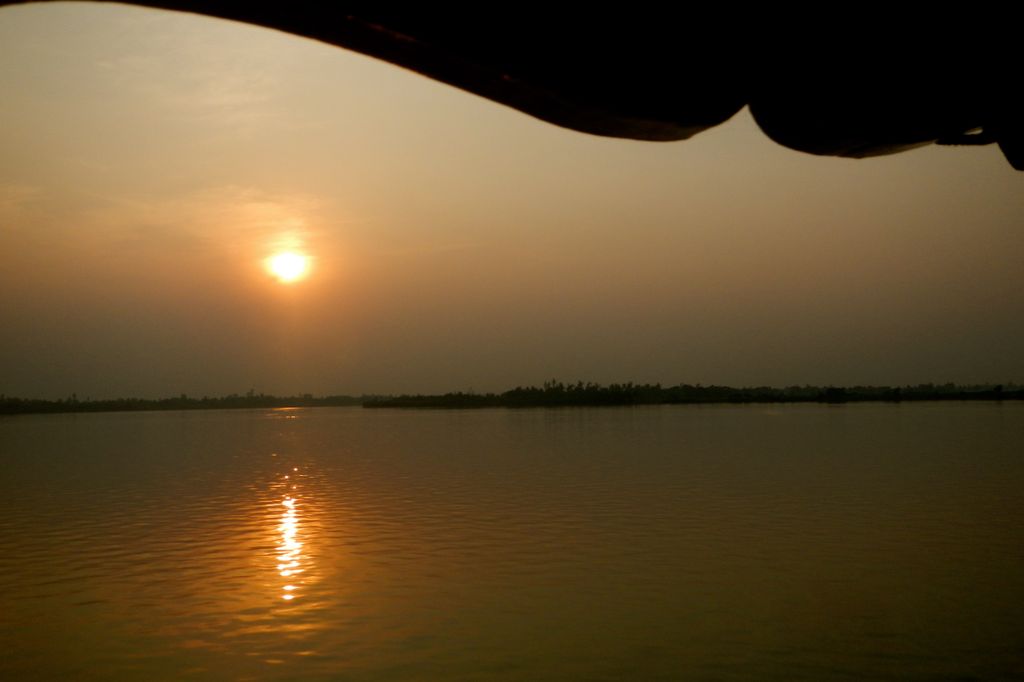
The Long Goodbye: On Seeing the Sundarban Islands
by Robert Verchick The Ganges River begins at the foot of the Gangotri Glacier in the Himalayas and culminates at the Sundarbans Delta, a massive sprawl of swamps, lakes, and scores of islands. (Find an earlier post on the Ganges here.) It’s the largest river delta in the world—home to endangered Bengal tigers, miles of mangroves, and nearly 12 million people (4.5 million on the Indian side and 7.5 million on the Bangladeshi side).
The Ganges River begins at the foot of the Gangotri Glacier in the Himalayas and culminates at the Sundarbans Delta, a massive sprawl of swamps, lakes, and scores of islands. (Find an earlier post on the Ganges here.) It’s the largest river delta in the world—home to endangered Bengal tigers, miles of mangroves, and nearly 12 million people (4.5 million on the Indian side and 7.5 million on the Bangladeshi side).
A student of the Mississippi River Delta, I had long wanted to visit the Sundarban Islands. So after giving a series of lectures in Kolkata, I accepted an invitation to visit some of the islands on a medical boat, operated by the Southern Health Improvement Samity, an organization in West Bengal that delivers health-care services to island villagers.
The experience was one of the high points of my semester sabbatical, which has now drawn to a close. The people were lovely. I chatted with a group of young girls about their new school building, which doubles as a safe house in times of flood. I learned about off-the-grid power from a farmer who had recently installed solar panels on the thatch of his mud hut. A local activist taught me about a program that employs women to grow mangrove saplings and replant them on fragile shores. And the lush forests were idyllic (once you looked past the plastic netting designed to keep the tigers in).
 Still, it was hard to ignore that these wonderful people and beautiful surroundings are slowly being swallowed by rising seas—just one of the many casualties of climate change. Some islands have already slipped below the water line. In the last decade thousands of villagers have been displaced. The consequences will unfold over decades.
Still, it was hard to ignore that these wonderful people and beautiful surroundings are slowly being swallowed by rising seas—just one of the many casualties of climate change. Some islands have already slipped below the water line. In the last decade thousands of villagers have been displaced. The consequences will unfold over decades.
It will be a long goodbye.
And not the only one. So many places, from Micronesia to Miami, are at risk. Part of letting go will involve complex logistics: identifying the places and species to abandon, orchestrating our retreats, planning the resettlement. The other part will be the heartbreak.
How will we deal with the pain of saying goodbye? Will we behave like the orphaned children in psychological studies, the ones who refuse to attach to anyone nice for fear of being abandoned again? Will we stop caring about our favorite coastlines, our storied cities, the world’s cultures, because the possibility of losing them (and knowing we’re to blame) is just too much for us to stomach?
 I hope not. If we give up now, we’ll lose what we might have saved with reasonable efforts. And we will have surrendered the reward of knowing and loving the things that matter.
I hope not. If we give up now, we’ll lose what we might have saved with reasonable efforts. And we will have surrendered the reward of knowing and loving the things that matter.
In times like these, we need a shot of Rabindranath Tagore, the Bengali poet and Nobel laureate:
Let me not pray to be sheltered from dangers,
but to be fearless in facing them.
Let me not beg for the stilling of my pain, but
for the heart to conquer it.
© 2014 The Center for Progressive Reform